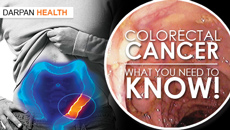Women are at a higher risk of developing anxiety and depression after a heart attack than men, new research shows.
In a study involving 160 patients from Vilnius University Hospital Santariskiu Clinics in Lithuania, researchers investigated the impact of gender and cardio-vascular disease risk factors on the risk of developing depression and anxiety after an heart attack.
They found that nearly one quarter of patients (24.4 percent) were depressed and of those, 28.2 percent had received treatment with anti-depressants.
"We found that women were more likely to develop anxiety and depression after a heart attack than men. More research is needed to discover the possible reasons for this," said professor Pranas Serpytis from Lithuania.
Patients with depression are nearly six times more likely to die within six months after a heart attack than those without depression.
"The increased risk of death in patients with depression persists up to 18 months after the heart attack. But despite the fact that post-heart attack depression is common and burdensome, the condition remains under-recognised and undertreated," Serpytis added.
The researchers also found an association between anxiety and smoking.
"Current smokers were more likely to have anxiety after an heart attack than non-smokers or people who had quit smoking more than two years ago," he said.
Encouraging patients to quit smoking and increase their physical activity levels should reduce their risks of anxiety and depression after the heart attack, the authors concluded.
The research was presented at the Acute Cardiovascular Care 2014 conference in Geneva, Switzerland.






